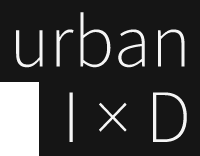From: Guardian UK
June 5, 2013
Dublin city adopts smart approach on road to economic recovery
The council is using technology to improve the transport network without major infrastructure change
Ireland's capital is one of the oldest in Europe, and the city council wants to maintain the city's historic fabric. The Georgian parts of Dublin are protected under policy introduced in the 1980s and 90s that prevent new roads being built in some of the most historic areas. However, with congestion becoming an increasing problem, another solution has been sought.
Brendan O'Brien, head of technical services at Dublin city council, explains: "We have had to find a way of doing things more efficiently." The city council has been working to improve the transport network without any major re-development. Instead, it has been collecting and analysing data, in partnership with IBM, to tackle congestion. This is being done as part of a push towards making Dublin a "smarter city".
Journey information is released and updated by Dublin city council every minute. Residents can go online and find the quickest route to their destination. The term "smart city" is synonymous with cities that use information and communication technologies to be more efficient in their use of resources. However, O'Brien calls it a "buzzword", joking that it implies other cities are stupid.
Ireland's capital has become IBM's smarter city testbed. Research is being conducted in Ireland on how problems like congestion can be tackled through joining up existing databases. This is part of IBM's largerSmarter Planet programme, which explores broader environmental concerns. The work involves applying analytics to huge amounts of data to solve pressing problems.
...
Martin Brynskov, an academic co-ordinator of AU Smart Cities, says collaborations like this one are likely to become increasingly common: "It is difficult for government to build systems [on their own] – either you have to partner up to build these infrastructures or the alternative is not to do it. But this is, in a way, to slow down a bit."
He is sceptical about the very obvious, strong alliance with IBM. "If you were a small business looking to collaborate with the council you might think; 'where on this stage do I fit?'"
From: Sustain Magazine
May 1, 2013
Smart cities and smart citizens
For future smart cities to thrive, it must be centred around people, not just infrastructure. This was the overwhelming message from a group of influential thinkers speaking at this year’s FutureEverything Summit. sustain’ went along to find out what smart-city planners can learn from bottom-up approaches…
In March this year, delegates from around the globe gathered at the FutureEverything Summit of Ideas & Digital Invention in Manchester. Representatives from Google, BBC, Intel, Vimeo and Kickstarter as well as from the Technology Strategy Board and engineering consultancy Arup, sat alongside artists and designers to discuss, amongst other things, Future Smart Cities. In a room packed with digital enthusiasts, one would think the messaging around smart cities would be extremely positive. However, it seems global corporations and the large-scale technology platforms they offer and promote seem to be at odds with many of the localised, small-scale technology projects showcased at the Summit and, indeed, the interests of citizens themselves. And if there was one stark warning that emerged from the Summit for city leaders thinking about investing in smart-city technology, it was ignore your citizens at your peril.
Martijn de Waal from UrbanIxD – a European research program working in the domain of technologically augmented, data-rich urban environments – notes that in a lot of the technology company literature on smart cities, their inhabitants are “mainly addressed as consumers rather than as citizens” and it is this visioning process that could ultimately lead to smart city failure.
“The usual vision is this: the city will start to collect data about everything we do and that data can then be used to make cities smarter or more efficient,” says de Waal. “The smart technology will control the city’s infrastructure, buildings, roads or safety. They call it ‘smart’ and ‘connected communities’ – but if you ask them what they mean by ‘communities’ it shows they have very much a business approach. They will tell you that they have created these data platforms on which all kinds of companies and their services can build upon and the lives of people will be better and we will have economic growth, more jobs and thus will make the community a better place.


